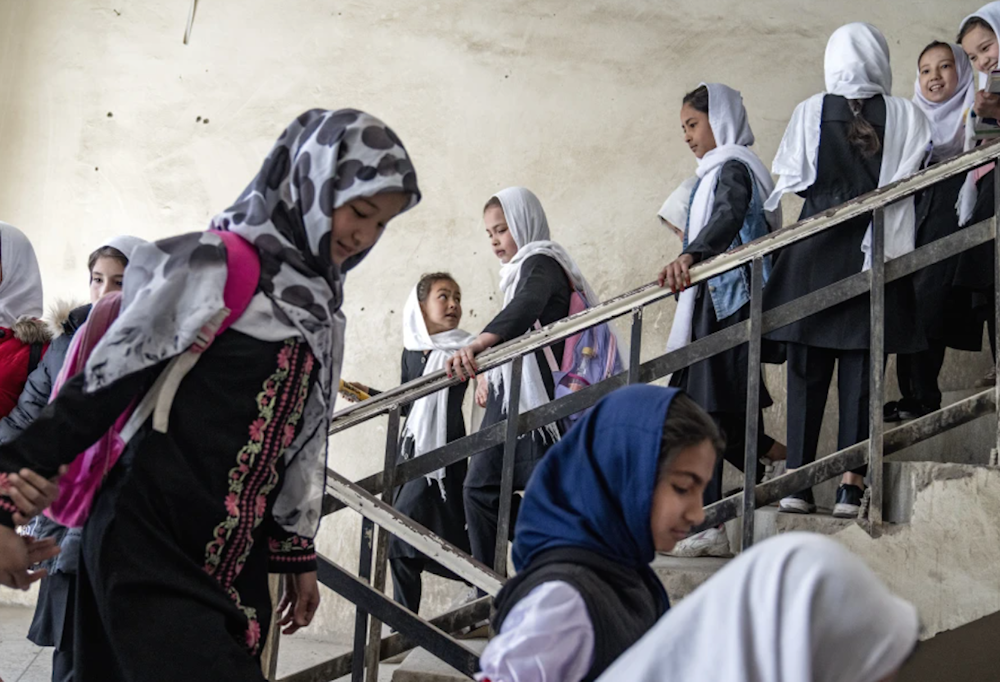Taliban deputy foreign minister demands opening girls' high schools
Back in July, Afghan supreme leader Hibatullah Akhundzada claimed the Taliban was allegedly working to improve the status of women in the country through "concrete measures".
-

Girls attend school on the first day of the new school year, in Kabul, Afghanistan, on March 25, 2023. (AP)
Taliban's acting deputy foreign minister urged his senior leadership to establish schools for Afghan girls, in one of the sharpest public condemnations of a policy that has contributed to the authorities' worldwide isolation.
Sher Mohammad Abbas Stanekzai stated in a speech over the weekend that limits on girls and women's education were incompatible with Islamic Shariah law, requesting that "leaders of the Islamic Emirate to open the doors of education," according to Tolo, a local broadcaster.
He asserted that injustice was being done against "twenty million people, out of a forty million people population," and noted that "in the time of the Prophet Muhammad (Peace Be Upon Him), the doors of knowledge were open to both men and women."
The statements were among the harshest public criticisms of the school closures by a Taliban official in recent years. Taliban insiders and diplomats have previously told Reuters that the supreme spiritual leader Hibatullah Akhundzada imposed the closures despite internal dissent.
Back in July, Afghan supreme leader Hibatullah Akhundzada claimed the Taliban was allegedly working to improve the status of women in the country through "concrete measures" and that they have begun to be considered "free and dignified" human beings.
"Under the rule of the Islamic Emirate, concrete measures have been taken to save women from many traditional oppressions, including forced marriages, and their...rights have been protected ... By issuing the six-article decree on women's rights, the status of women as a free and dignified human being has been restored," Akhundzada said in his statement.
He further argued that the Taliban succeeded in restoring the country's independence and strengthening "brotherhood and national unity" while abolishing "all kinds of prejudices such as race, language, and religion."
Back in December 2022, Afghanistan's Ministry for Higher Education said the Taliban authorities implemented a nationwide ban on university education for females, a move that came just three months after thousands of women sat for entrance examinations for higher education across the country.
"You all are informed to immediately implement the mentioned order of suspending the education of females until further notice," said a statement signed by the Minister for Higher Education, Neda Mohammad Nadeem, delivered to all public and private academic institutions.
A week later, its neighbor Iran condemned their decision, and an Iranian Foreign Ministry official expressed Iran’s readiness to provide university education for Afghan women.

 3 Min Read
3 Min Read








